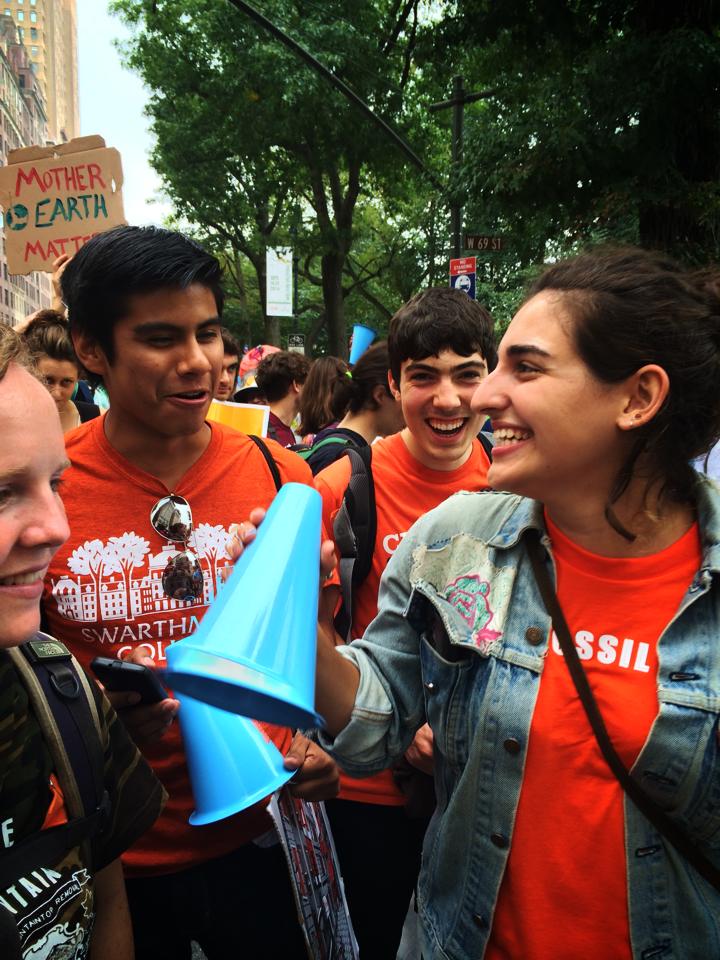Reflections of a US student divestment campaigner in the wake of a new IPCC report and a new school year – Sara Blazevic, Swarthmore College
“In the starkest language it has ever used, the expert panel made clear how far society remains from having any serious policy to limit global warming. Doing so would require leaving the vast majority of the world’s reserves of fossil fuels in the ground or, alternatively, developing methods to capture and bury the emissions resulting from their use, the group said… Yet there has been no sign that national leaders are willing to discuss allocating the trillion-ton emissions budget among countries, an approach that would confront the problem head-on, but also raise deep questions of fairness. To the contrary, they are moving toward a relatively weak agreement that would essentially let each country decide for itself how much effort to put into limiting global warming, and even that document would not take effect until 2020.”
The divestment movement has been saying this for a few years, so while it’s great to hear the UN reiterate, in no unclear terms, that the business model of the fossil fuel industry is incompatible with a just and stable future on this earth, it’s depressing to be reminded over and over again that our leaders will not take the steps that are clearly necessary to end the climate crisis. In spite of the overwhelming amount of scientific evidence indicating that a rapid transition away from fossil fuels is imperative, in spite of the growing numbers of powerful figures that have come out and voiced support for the divestment movement, the fossil fuel industry will concede nothing until it is in its interests to do so. No lasting change will happen until a broad-based and powerful social movement stigmatizes extraction to the point that it becomes socially and morally untenable.
In other words, winning is not inevitable, and sometimes it’s necessary to step back and hold that cruel reality, in all its devastating dimensions.
We know that we need everyone and their mother organizing to cripple an industry founded on social, economic, and environmental injustice. We know that many, many people have already lost their homes, their livelihoods, their lives, to the crisis this industry has produced. No one is going to build this movement for us – it’s in our (young people’s) hands. We hold tremendous, tremendous amounts of responsibility. We’re a frontline of the climate crisis and we have a lot at stake – our whole lives are at stake. We will have to live with the impacts of climate change, and our successes and failures as a movement, for a very, very long time. We have decades ahead of us to watch the world transform, for better and worse ways. We have decades to dream about what parts we can play in those transformations.
There is a lot of work ahead. It’s painful for me to think about what it will mean to structure my life around averting crisis, knowing even a little bit about what kind of emotional toll it takes to look crisis right in the face. I wake up everyday feeling unsure of whether I have it in me to maintain hope, but certain that backing down will never be an option. I wrote this out so I could put it in words for somebody else: backing down will never be an option. At this point, it’s my future on the line as well, and I feel that more deeply every day. I hope you all feel this. I hope we are able to turn fear into urgency and anger into commitment and sadness into love. I hope we never forget the magnitude of what we are fighting for.
I’ll be following up on this post with a piece about how fossil fuel divestment campaigns are preparing through building power to escalate this spring.
